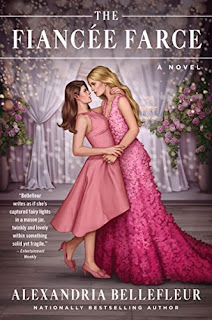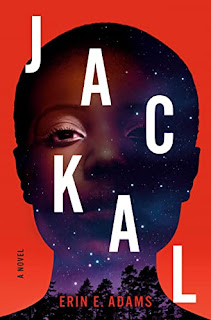Berlin by Bea Setton
US edition published March 2023 via Penguin
★★★★★
Daphne is new in Berlin, spending her days in German classes and her nights trying to reinvent herself—trying, and trying, and desperate to believe that she can outrun herself.
Daphne is both bitingly self-aware and a master of self-delusion. She knows who she wants to be, and sometimes she can stay there for a while—but she also knows, acutely and painfully, who she is. She's not written to be a likable character, exactly; if you find yourself relating to her, you'll likely be unnerved rather than pleased. She can only project health and stability for so long before the cracks start to show. But...it's also really clear that the author understands both Daphne and the sensation of being new in Berlin...and also the sensation of that newness starting to wear off. Hinterhöfe and figuring out recycling rules and Stolpersteine and asparagus pots and leaving glass bottles near trash cans for the homeless to collect; quark and paranoia about WhatsApp security and the difference in comfort between the U-Bahn and the S-Bahn; and on it goes—if you've ever lived in Berlin for even a few months, you'll recognize it. Oh, and the awkwardness of dating in Berlin, of course. I cannot tell you how weird it is to read so accurate and wry a description of being a new Ausländerin in Berlin.
I picked this up for the cover and the contemporary Berlin setting (it is surprisingly hard to find books in English that are set in Germany but that are not set during one war or another). The cover reminds me of Berlin street art—a paste-up, probably, something you'd find on a heavily graffitied and postered wall in an underpass. It's the sort of thing I'd take a picture of, pop on Instagram, and half-imagine that I was living the life of the girl in the picture, a life I'd assume to be more interesting and glamorous than my own. Daphne is perhaps the sort to do the same, minus Instagram, which I find both entertaining and disturbing.
I am not, thank sweet mercy, Daphne. I see more than I'd like of myself in her, but the similarities extend only so far. She's also not somebody I'd like to get to know. But this is basically the exact book I've been looking for since I first visited Berlin in 2016. Sometimes I loved it, sometimes I wanted to beat my head against the wall on Daphne's behalf, and I'm left feeling like this filled a weird little Berlin Ausländerin book–shaped hole in my soul.
Thanks to the author and publisher for providing a review copy through NetGalley.






























